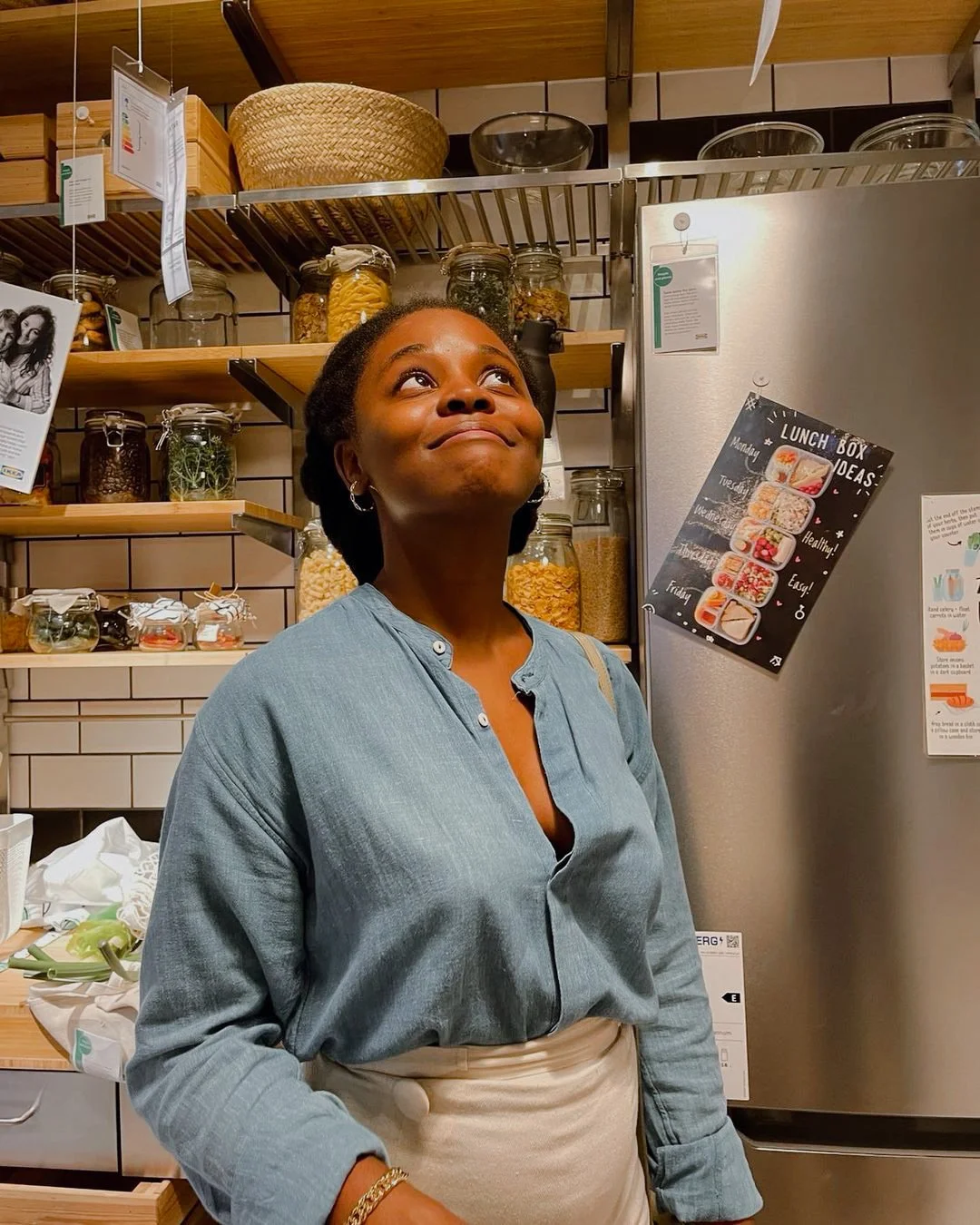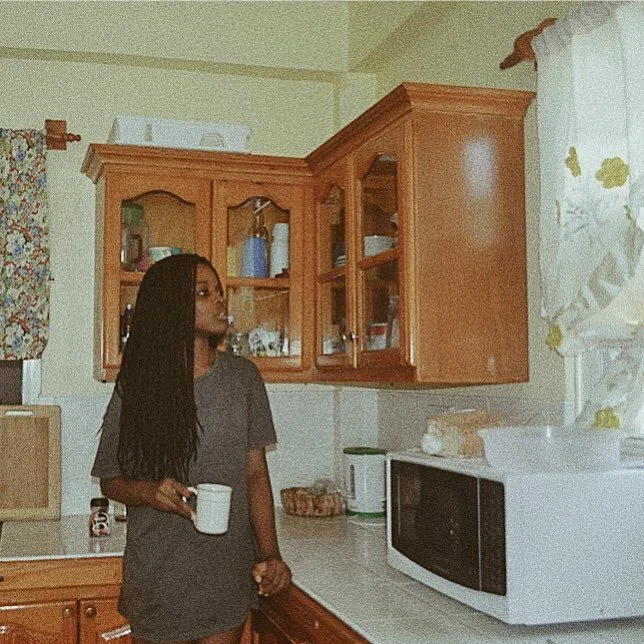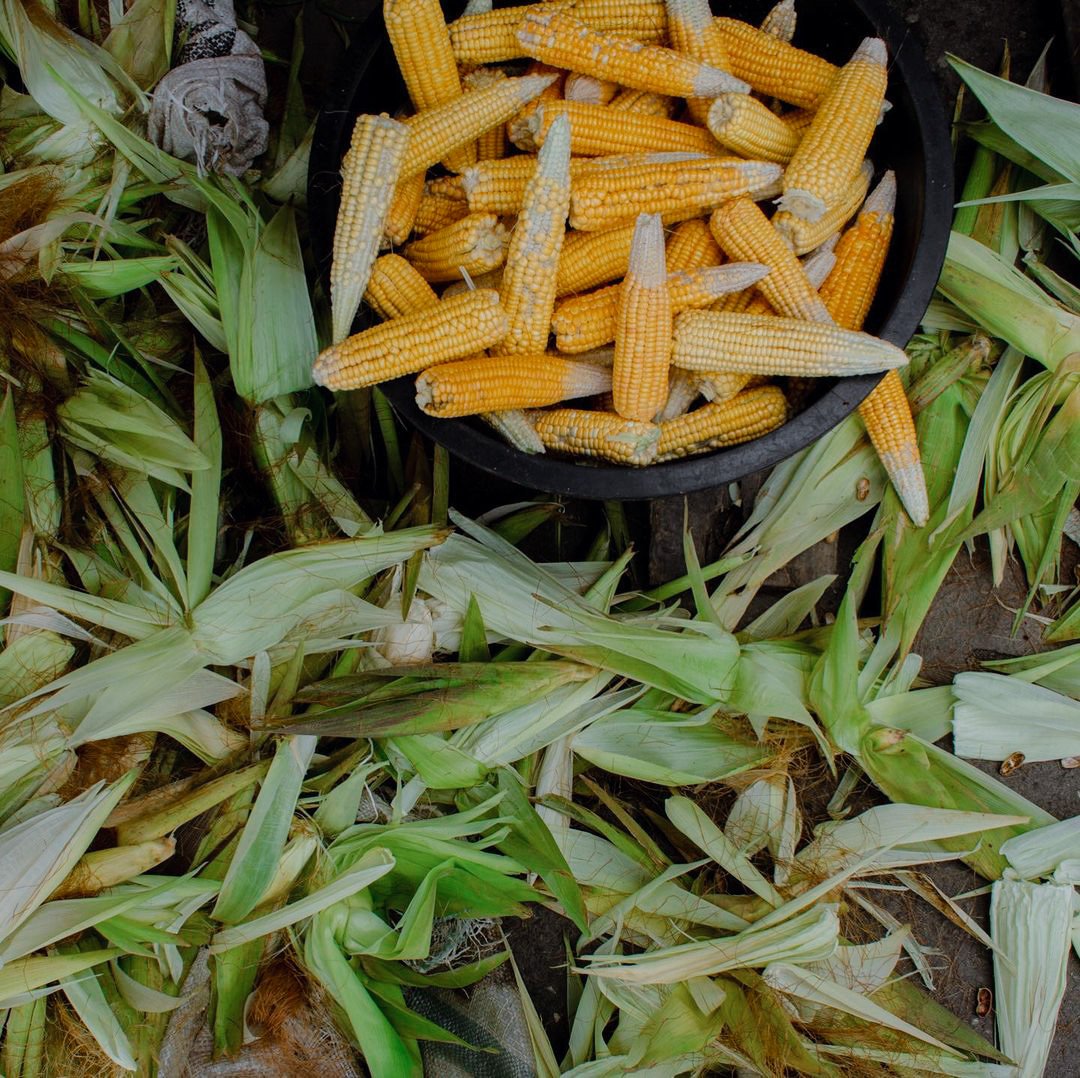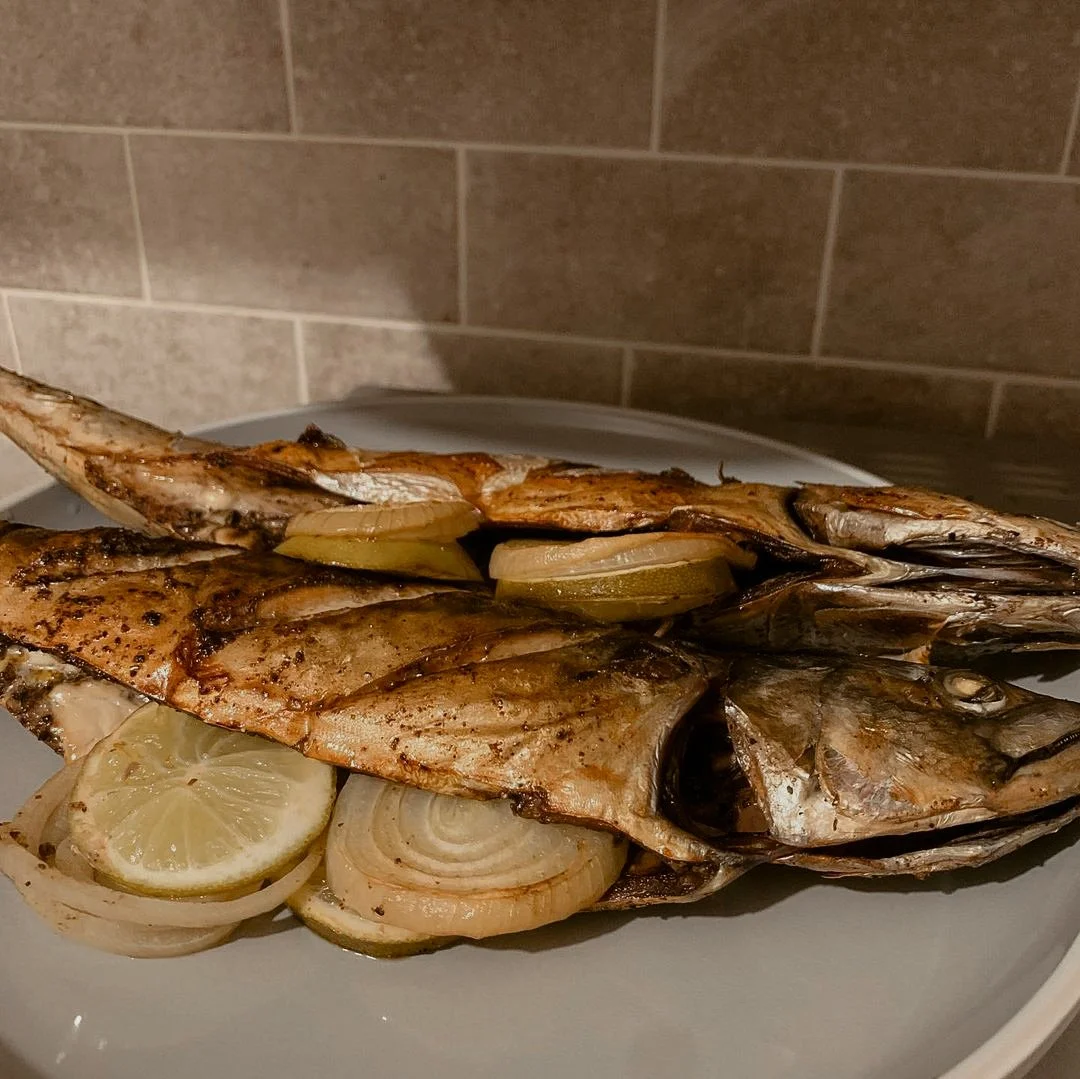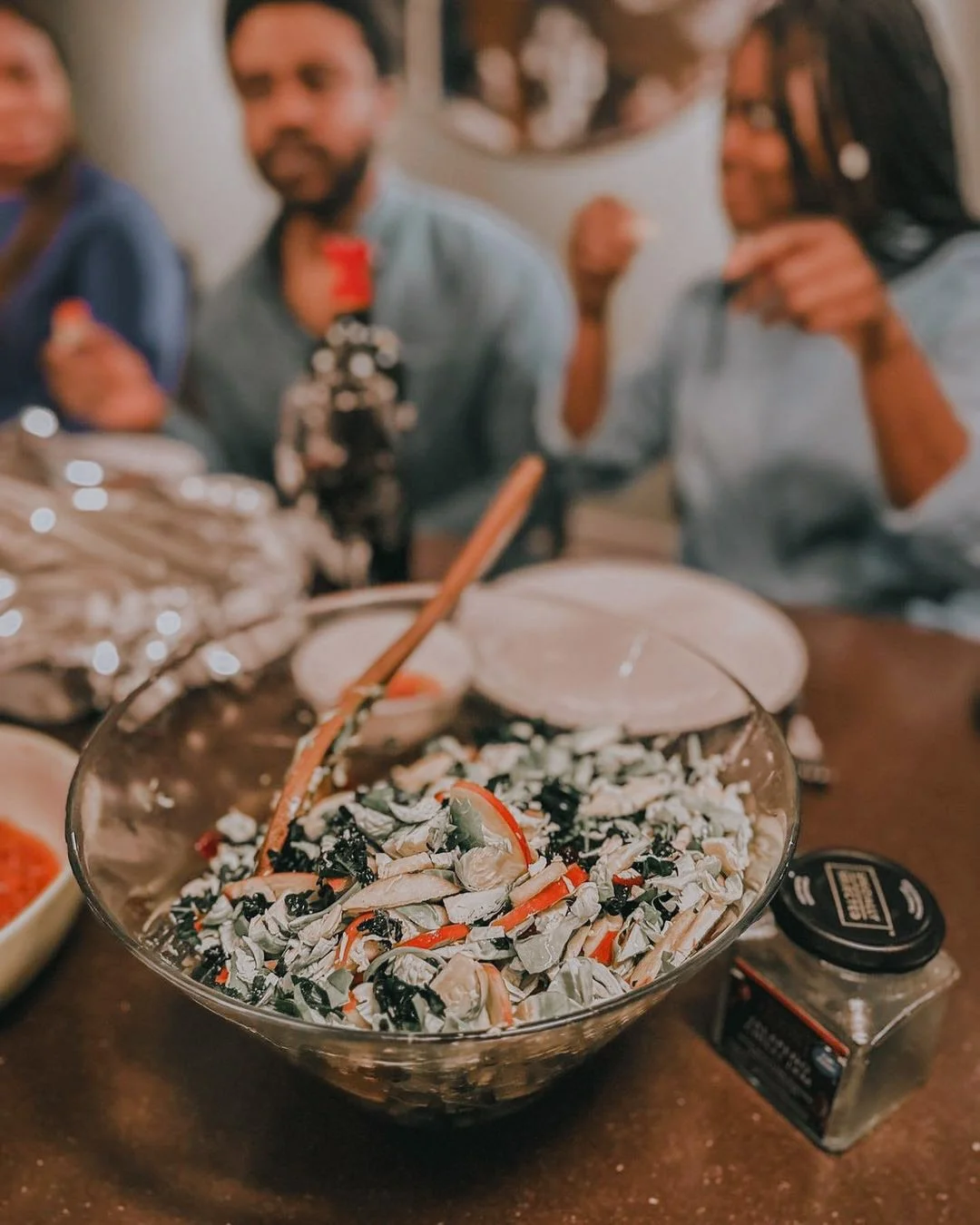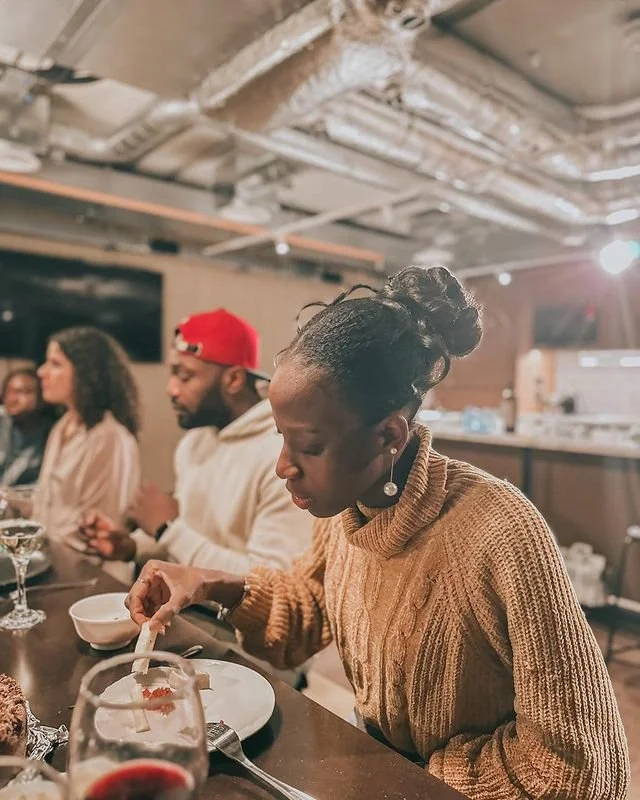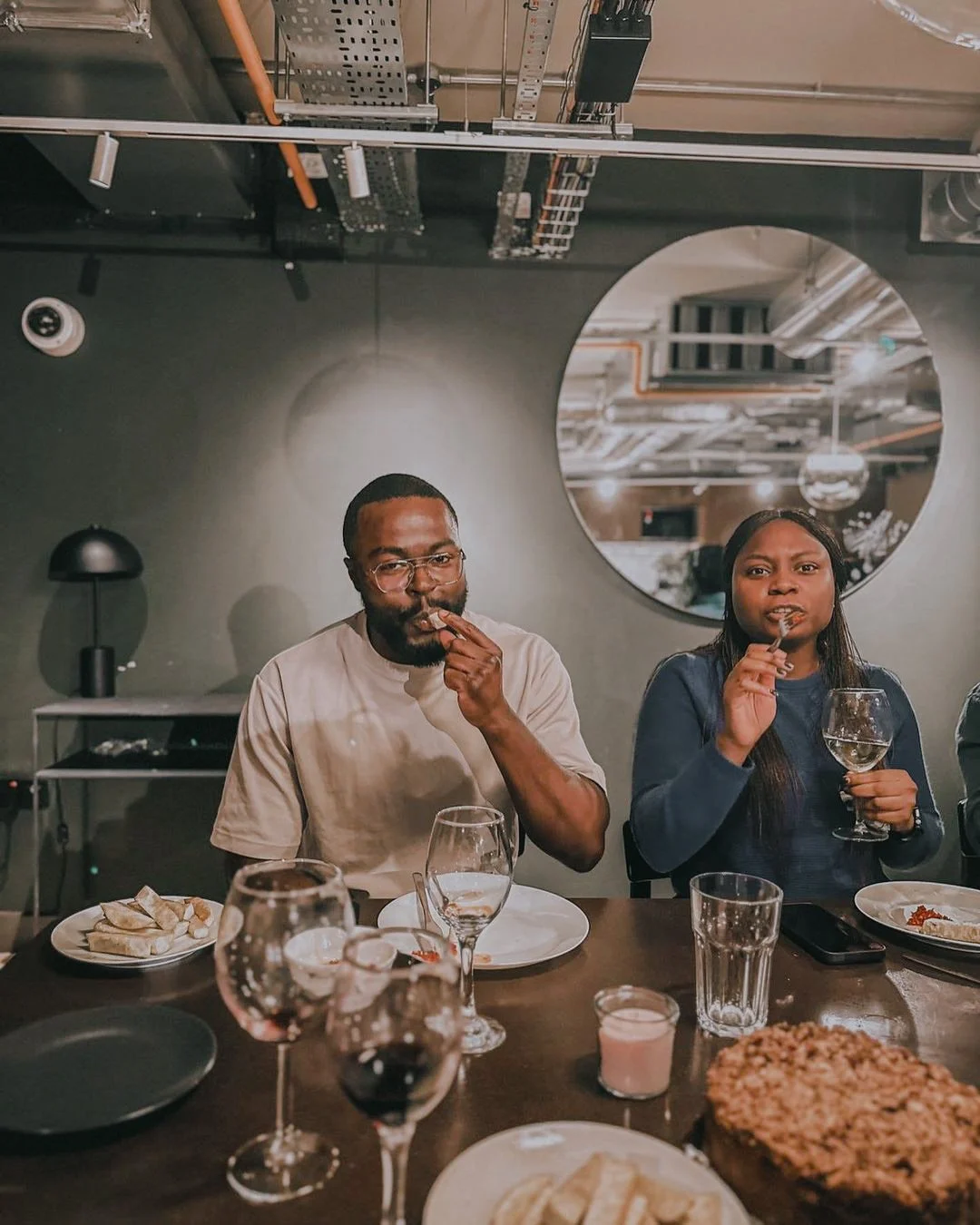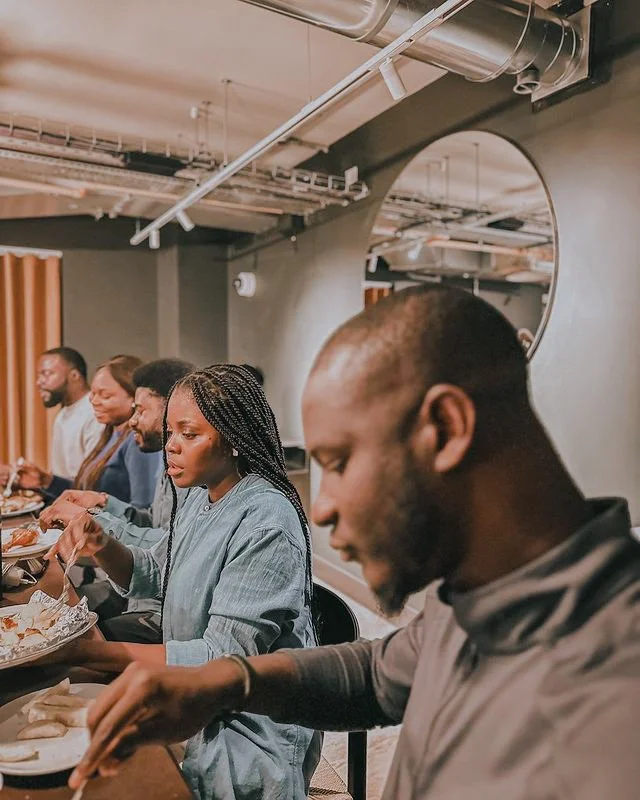Indulge In A Unique Dining Experience With OgoisLiving
Can you tell us more about your background and how it inspired you to start a supper club based on seasonal ingredients?
My name is Michelle Ogochukwu. I am Nigerian and an Igbo babe. I’ve always loved food but did not realize how much I did until I started university at the University of Debrecen, Hungary for my medical degree. I joined the Welfare community in my church because I loved that it involved preparing meals and selling them to the community to raise money for the church. There were a lot of Nigerians studying medicine there.
Michelle Back in Uni
The welfare team was given the creative freedom to make anything we wanted, which fuelled me to get experimental and create new snacks that were slightly different from the norm people expected. The church was a Nigerian church so many people usually hesitated to try my new creations. Not because they didn’t look or taste good, they were just different and as we know, people aren’t always open to new experiences.
During bake sales, I’d usually have to sweet-talk people to try my “fancy” cakes but soon noticed that whenever they did, they’d always sell out. From the moment they’d decide to give it a taste, you could literally see them fall in love. It was always funny seeing their skepticism turn into a delight and then seeing them recommend my cakes to their friends to try highlighting their earlier skepticism as well. This really opened my eyes to be open to trying new things and experiences. You just never know until you try. That developed my interest in cooking and baking. I had a small side/ cake business and two bake sales that went incredibly well. This introduced me to my love for cooking, baking, and my love for hospitality.
In regards to starting a supper club based on seasonal ingredients, I’ll start by saying the weather in Nigeria and the UK are totally different. In Nigeria, we just have two seasons; Harmattan and Rainy season. Here in the UK, we have Autumn, Winter, Spring, and Summer. The weather affects and dictates a lot of what we do in the UK. In many cases, it’s even a conversation starter if we’re being honest. To make the best out of working and living here, it’s best to work according to the seasons. Working with seasonal foods means using fresh ingredients that better taste and are less likely to have been imported hence being so cheaper with fewer preservatives. I work a lot with food from back home too. Thanks to international trade, when foods are in season in Nigeria, they’re also readily available and literally everywhere in markets there and we now can access them easily here in the UK.
What inspired you go for a supper club setting as opposed to cooking and posting your recipes on social media?
I have numerous reasons but it all starts with the desire to build some sort of community. I don't have as many friends as I would want to have in England, you know. Because I have lived in different places, my friends live in different places around the world. I would like a physical community with people around to interact with. So I thought, what’s the easiest thing for me to do that is second nature can bring people together? Cooking was the first thing that came to mind. Supper Clubs aren’t new but it helps me to bring all the things I enjoy into one place. My culinary interest, food presentation, hospitality, and a community of people around me. When coming to eat, I want people to form new and real connections. I want us to have conversations. I crave physical interaction. A lot of us are working now, I believe it is important for us to form new connections outside of work. A supper club is the best natural progression for me to embark on.
How do you source your ingredients and what criteria do you use to select them?
I find out what’s in season on Google, to be honest. I wish I had more access to farmers’ markets and open markets. I also check what’s in season in Nigeria. I have this wonderful reference I always fall back on by The Kitchen Butterfly. She does an incredible job documenting Nigerian and West African food. She has a seasonal produce calendar I always use. I always think “What would I love to introduce people to and what would I like to try? I’m very playful with how I approach food so I try to find ingredients that are interesting.
What is your creative process for developing the menu, and how do you balance familiar flavors with more adventurous ones?
I have no set process but I’m very playful with how I approach food so I try to find ingredients that are interesting. I can tell you for sure that there’s a lot of recipe testing because I’m very experimental. Texture and taste are very important in food. There are times I have to tweak a lot of my recipes to get the perfect mix so I tend to go back to the drawing board a lot to decide how best to present it in taste and texture. My process entails a lot of tasting and tweaking especially when I try to play on familiar snacks people know too well but I want to give a different taste. In summary, finding the wildest ideas but being thoughtful about the culinary process to achieve them while tasting and trying along the way to substitute or tweak ingredients is how I work.
Can you share with us some examples of dishes you've created for the supper club and what makes them unique?
I have this very interesting take on Kuli Kuli (A Nigerian snack). I’ve created everything that Kuli Kuli is in terms of flavour but in texture? That's what is different. I made a suya chicken meal and make a gravy out of the pan drippings. Also, puff puff, I always have a filling for example orange or lemon curd fillings. I also tried a caramel curd filling too.
How do you ensure that your guests have a cohesive and enjoyable dining experience?
I have hosted only one Supper Club event so far, so it's still a work in progress. However, the most important thing is staying in tune with my guests and checking on in during the meal. It's been a humbling process to put myself out there and tell people about it. It pushes me to do my best and show up for guests that come. I believe being open to criticism is crucial, as it helps one learn and improve. Additionally, learning to accept help is important. The community aspect of it is amazing. We're all humans so it's important to not lose sight of connecting ion that level. I try to create a welcoming environment and show up as I would want to be received. My personality is being refined in the process and in my service to my guests.
How has being an African living in the diaspora influenced your journey and outlook on life? Has moving away from home (Nigeria) affected how you live?
My answer is simple: life is fun. It all started in high school in Nigeria where, if you were in science class, you were expected to become a doctor or an engineer. I chose medicine "as a caring babe" and went to medical school in Hungary. However, after spending two years there, I realized it wasn't for me and returned to Nigeria. My time in Hungary made me realize that I enjoy learning new things. I was exposed to their native language called Magyar. It was challenging learning and getting around, but the locals appreciated my effort and were happy to teach and correct me. Slowly, I began to link the words to everyday life, and learning became fun. Moving back to Nigeria, my family convinced me to give medicine another try, and I moved to St. Vincent, which was totally different from Hungary but was another amazing opportunity for me to learn and soak up a new culture. My three years there, especially the final year, shaped my thirst for life and learning new things about nature, food, the links between Africa and the diaspora, other continents, different ideologies, and life in general. My room was facing the sea, I had a friend who would give me fresh food and produce whenever I needed. Life in St Vincent was amazing and I had the best time there. Reflecting on my journey so far, although I struggled with getting my medical degree, I grew in other ways that have now shaped the path I'm on in life.
How do you see the supper club evolving in the future, and what new ideas do you have for it?
To be honest, at this point, I’m going with the flow but I would love to have people passionate about attending. I want to host people who are interested in trying new takes on food. I would like us to reach a wider audience starting from other West African countries. I feel our food and cultures are so similar. I also find Asian food flavours very interesting so I would like to venture into Asian delicacies.
What role do you think supper clubs play in the larger food industry, and how do you see them contributing to it?
It’s the perfect middle ground for someone who loves and enjoys cooking but doesn’t want to own/run a restaurant (yet). With a supper club, you have full creative agency to create anything you want. You make the rule and get to express yourself in whichever way without anyone imposing any rules on you. It’s my sweet spot for my creative expression. I feel supper clubs make food personal. In a supper club, you have direct access to the chef. Most supper clubs are hosted by people who are passionate about food and want to introduce a certain perspective on their creative expression of food. Guests are more educated about the different ingredients used as well as where they’re sourced. They get to experience meals they may not have come across or had direct access to. Supper clubs introduce people to a whole new palette.


